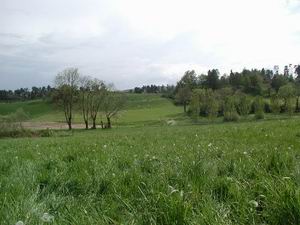Project Description
Context
The role of biological diversity for ecosystem functioning is a highly debated topic which has recently received support from grassland experiments manipulating plant diversity. In addition, studies on biodiversity dynamics in managed grasslands lead to the definition of functional traits and of functional types and to the understanding of their consequence for trophic networks (herbivory, soil organisms), on the one hand, and for biochemical cycles, on the other hand. In these studies no attention was paid to mechanistic modelling however.
Objectives

This project benefits from two large and long-term experiments which have been recently launched to study the functional role of biodiversity in grasslands: the Environmental Research Observatory (ORE) " Grasslands, Biochemical Cycles and Biodiversity " (PCBB), in France, and the Grassland Diversity Experiment of the Max Planck Institut (MPI) in Jena, Germany. These experiments are complementary: the first manipulates management factors at identical initial biodiversity; the second manipulates plant diversity at identical management.
We propose to complete the measurements in the two experiments, by measuring plants traits at shoot and root levels and by evaluating soil communities of microbes (nitrifying, denitrifying) and of engineer organisms (earthworms) which have a role in ecosystem processes. These measurements will also be used to parameterize a largely mechanistic model (GEMINI) which simulates the dynamics of populations (or functional types) of resident organisms (plants or soil micro-organisms) and their impacts on processes like productivity, decomposition and herbivory. Model development will be continuing, and the model will be evaluated using the data of the two experiments. Then, sensibility analyses will be done to determine which traits (model parameters) are the most important for the effect of complementarity and of selection in biodiversity experiments and for productivity, decomposition and herbivory in management experiments.
Ambition
The project issue is important: for highly controlled experimental systems, it is a matter of testing by numerical simulation the consistency of our current knowledge, and our ability to mechanistically explain the functional role of plant diversity and its consequences for the dynamics of managed ecosystems like grasslands.